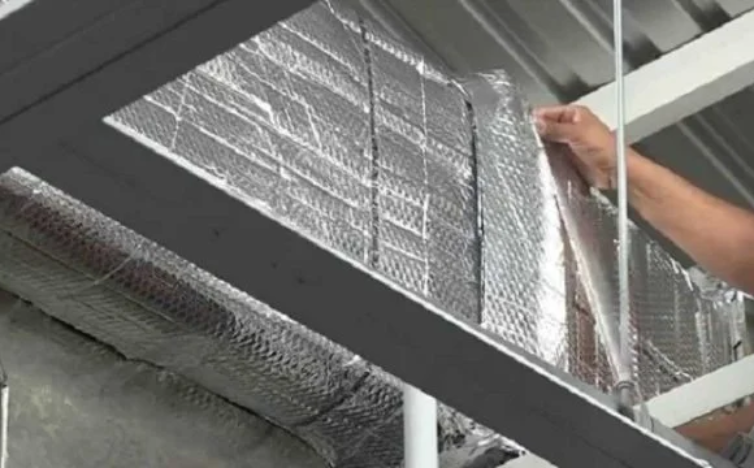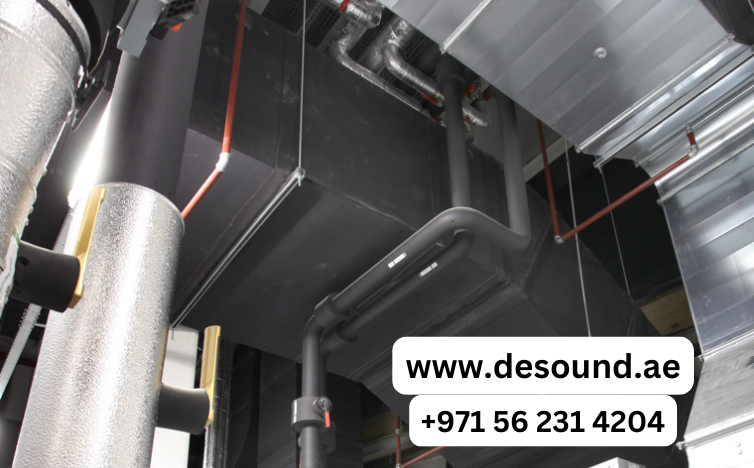HVAC systems are essential for maintaining indoor comfort, but their noise can disrupt homes, workplaces, and public spaces. Controlling this noise is crucial for ensuring a comfortable and serene environment. This guide explores practical HVAC solutions to manage noise and enhance acoustic comfort.
Understanding HVAC Noise Sources
HVAC noise can originate from various components, including:
- Fans and Blowers: These generate mechanical noise during operation.
- Ductwork Vibrations: Airflow within ducts can create excessive vibrations.
- Compressors: The heart of air conditioning systems, compressors can produce loud operational sounds.
Identifying the source of noise is the first step in implementing an effective control strategy.
The Importance of HVAC Noise Control
Uncontrolled HVAC noise can lead to:
- Reduced Productivity: Excessive noise disrupts focus in offices and schools.
- Decreased Comfort: Loud systems can make homes less relaxing.
- Negative Health Impacts: Chronic exposure to noise can cause stress and hearing issues.
Effective noise control measures ensure that these systems operate quietly without compromising performance.
Strategies for HVAC Solutions for Noise Control

1. Install Acoustic Duct Liners
Acoustic duct liners absorb noise caused by airflow. They are particularly effective in reducing vibrations and preventing sound from escaping into rooms.
2. Use Soundproof Barriers
Installing barriers around noisy components like compressors can contain sound. Acoustic panels or enclosures are excellent for this purpose.
3. Opt for Flexible Duct Connections
Flexible connections minimize the transmission of noise caused by rigid metal ducts. They also help reduce vibrations.
4. Maintain Proper HVAC System Design
Ensure ducts are properly sized and avoid sharp bends. Poor design increases noise due to turbulence in airflow.
5. Upgrade to Quieter HVAC Equipment
Modern HVAC systems often feature quieter operation. If your current system is excessively noisy, upgrading to a more efficient and silent model may be the solution.
See Also: Eco-Friendly Acoustic Panels
When to Address HVAC Noise
You should consider HVAC noise control:
- During Installation: Proper placement and design minimize future noise issues.
- During Renovations: This is the ideal time to incorporate soundproofing elements.
- When Complaints Arise: If occupants frequently mention noise, it’s time to take action.
Benefits of HVAC Noise Control
Implementing noise control solutions brings several advantages:
- Enhanced Acoustic Comfort: Create spaces that are serene and conducive to work, rest, or leisure.
- Improved System Efficiency: Addressing noise often improves overall HVAC performance.
- Increased Property Value: Quiet, comfortable spaces are more desirable to occupants and buyers.
Call us: Contact DeSound Soundproofing Expert in Dubai For Soundproofing: +971 56 231 4204
Conclusion
HVAC noise control is essential for creating a peaceful and productive indoor environment. By addressing noise sources and employing effective solutions, you can significantly enhance acoustic comfort in any space. Prioritizing quiet HVAC operation not only benefits occupants but also contributes to the overall quality and value of the property.

